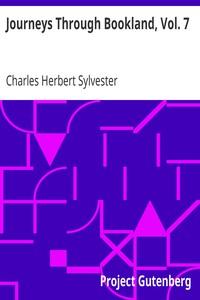Read this ebook for free! No credit card needed, absolutely nothing to pay.
Words: 6336 in 3 pages
This is an ebook sharing website. You can read the uploaded ebooks for free here. No credit cards needed, nothing to pay. If you want to own a digital copy of the ebook, or want to read offline with your favorite ebook-reader, then you can choose to buy and download the ebook.


: The Princess And The Jewel Doctor 1905 by Hichens Robert - Short stories; Princesses Fiction; Tunis (Tunisia) Fiction
THE PRINCESS AND THE JEWEL DOCTOR
In St. Petersburg society there may be met at the present time a certain Russian Princess, who is noted for her beauty, for an ugly defect--she has lost the forefinger of her left hand--and for her extraordinary attachment to the city of Tunis, where she has spent at least three months of each year since 1890--the year in which she suffered the accident that deprived her of a finger. What that accident was, and why she is so passionately attached to Tunis, nobody in Russia seems to know, not even her doting husband, who bows to all her caprices. But two persons could explain the matter--a Tunisian guide named Abdul, and a rather mysterious individual who follows a humble calling in the Rue Ben-Ziad, close to the Tunis bazaars. This latter is the Princess's personal attendant during her yearly visit to Tunis. He accompanies her everywhere, may be seen in the hall of her hotel when she is at home, on the box of her carriage when she drives out, close behind her when she is walking. He is her shadow in Africa. Only when she goes back to Russia does he return to his profession in the Rue Ben-Ziad.
This is the exact history of the accident which befell the Princess in 1890. In the spring of that year she arrived one night at Tunis. She had not long been married to an honourable man whom she adored. She was rich, pretty, and popular. Yet her life was clouded by a great fear that sometimes made the darkness of night almost intolerable to her. She dreaded lest the darkness of blindness should come upon her. Both her mother, now dead, and her grandfather had laboured under this defect. They had been born with sight, and had become totally blind ere they reached the age of forty. Princess Danischeff--as we may call her for the purpose of this story--trembled when she thought of their fate, and that it might be hers. Certain books that she read, certain conversations on the subject of heredity that she heard in Petersburg society fed her terror. Occasionally, too, when she stood under a strong light she felt a slight pain in her eyes. She never spoke of her fear, but she fell into a condition of nervous exhaustion that alarmed her husband and her physician. The latter recommended foreign travel as a tonic. The former, who was detained in the capital by political affairs, reluctantly agreed to a separation from his wife. And thus it came about, that, late one night of spring, the Princess and her companion, the elderly Countess de Rosnikoff, arrived in Tunis at the close of a tour in Algeria, and put up at the Hotel Royal.
The bazaars of Tunis are among the best that exist in the world of bazaars, and, on the morning after her arrival, the Princess was anxious to explore them with her companion. But Madame de Rosnikoff was fatigued by her journey from Constantine. She begged the Princess to go without her, desiring earnestly to be left in her bedroom with a cup of weak tea and a French novel. The Princess, therefore, ordered a guide and set forth to the bazaars.
The guide's name was Abdul. He was a talkative young Eastern, and as he turned with the Princess into the network of tiny alleys that spreads from the Bab-el-bahar to the bazaars, he poured forth a flood of information about the marvels of his native city. The Princess listened idly. That morning she was cruelly pre-occupied. As she stepped out of the hotel into the bright sunshine she had felt a sharp pain in her eyes, and now, though she held over her head a large green parasol, the pain continued. She looked at the light and thought of the darkness that might be coming upon her, and the chatter of Abdul sounded vague in her ears. Presently, however, she was forced to attend to him, for he asked her a direct question.
"To-day they sell jewels by auction near the Mosqu?e Djama-ez-Zitouna," he said. "Would the gracious Princess like to see the market of the jewels?"
The Princess put her hand to her eyes and assented in a low voice. Abdul turned out of the sunshine into a narrow alley covered with a wooden roof. It was full of shadows and of squatting men, who held out brown hands to the Princess as she passed. But she was staring at the shadows and did not see the merchants of Goblin Market. Leaving this alley Abdul led her abruptly into a dense crowd of Arabs, who were all talking, gesticulating, and moving hither and thither, apparently under the influence of extreme excitement. Many of them held rings, bracelets, or brooches between their fingers, and some extended palms upon which lay quantities of uncut jewels--turquoises, sapphires, and emeralds. At a little distance a grave man was noting down something in a book. But the Princess scarcely observed the progress of the jewel auction. Her attention had been attracted by an extraordinary figure that stood near her. This was an immensely tall Arab, dressed in a dingy brown robe, and wearing upon his shaven head, which narrowed almost to a point at the back, a red fez with a large black tassel. His claw-like hands were covered with rings and his bony wrists with bracelets. But the attention of the Princess was riveted by his eyes. They were small and bright, and squinted horribly--so horribly, that it was impossible to tell at what he was looking. These eyes gave to his face an expression of diabolic and ruthless vigilance and cunning. He seemed at the same time to be seeing everything and to be gazing definitely at nothing.
"That is Safti, the jewel doctor," murmured Abdul in the ear of the Princess.
"A jewel doctor! What is that?" asked the Princess.
"When you are sick he cures you with jewels."
"And what can he cure?" said the Princess, still looking at Safti, who was now bargaining vociferously with a fat Arab for a piece of milk-white jade.
"All things. I was sick of a fever that comes with the summer. He gave me a stone crushed to a powder, and I was well. He saved from death one of the Bey's sons, who was dying from hijada. And then, too, he has a stone in a ring which can preserve sight to him who is going blind."
Free books android app tbrJar TBR JAR Read Free books online gutenberg
More posts by @FreeBooks

: Journeys Through Bookland Vol. 7 by Sylvester Charles Herbert - Children's literature; Literature Collections Children's Anthologies







